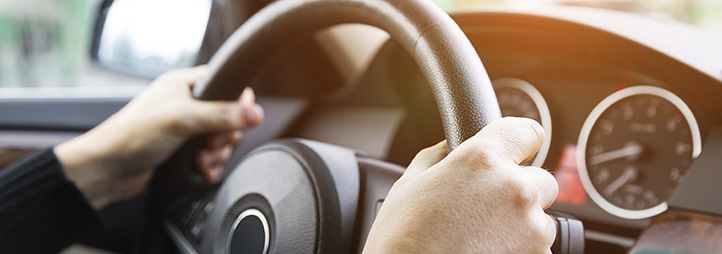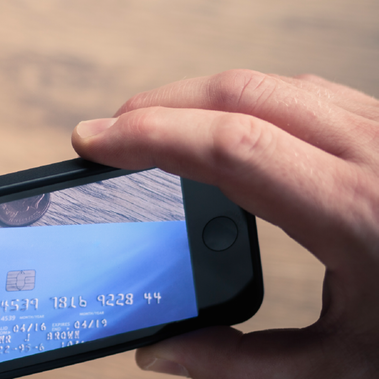Transformational payments solutions: The Metropolitan Transportation Authority (MTA) of New York City plans to roll out contactless payment capabilities at all of its 472 stations by the end of 2020. This will allow consumers to tap their mobile devices or contactless cards at the turnstiles, rather than swiping a pre-loaded MetroCard. To support this objective, Visa has been promoting the issuance of contactless cards across its issuer base. About half of all Visa cards in the New York area are now contactless. As transit remains a key category of payments that continues to be made in cash, Visa hopes that promoting the use of contactless cards at MTA stations will accelerate the migration from cash to card.Source: MarketWatch |
|
Rules and regulations: As facial recognition gains prominence in China, the Chinese government has appointed the artificial intelligence firm SenseTime to lead the creation of national standards for the facial recognition industry. The group, which will also include Tencent, Xiaomi, and Ant Financial, is tasked with standardizing the research and development of facial recognition products. Facial recognition is already used in China for sectors such as surveillance, tourism, and electronic payments. The new standards will come in addition to existing policies that require citizens to link online accounts with their government ID, further removing anonymity from internet use in China. This will affect more than half of the Chinese population who use mobile devices to access the internet, using apps such as WeChat for not only messaging but to make payments as well. |
|
Customers’ evolving expectations: According to the Aite Group, losses due to false credit and debit card declines will reach $443 BN by 2021. This figure is significantly higher than losses from card fraud alone. Additionally, research shows that 39% of consumers are likely to stop using a card and 25% would reduce usage of a card following a false decline. Furthermore, 32% of consumers say they will stop shopping at the merchant where their card was declined.Source: Business Wire |
|
Data:The PCI Security Standards Council announced new data security standards for contactless payments solutions that use a commercial off-the-shelf (COTS) mobile device with near-field communication (NFC). The PCI Contactless Payments on COTS (CPoC) Standard is designed to protect payments data for contactless purchases. Components of a solution compliant with the Standard include a COTS device with an NFC interface that can read the payment card or device, validated payment acceptance software that runs on the merchant COTS device to initiate a contactless transaction, and back-end systems that monitor the solution’s security. Once validated, solutions that are compliant with the Standard will enable merchants to seamlessly accept contactless payments without any additional hardware changes. |
|
New providers: Klarna, a POS-financing company, plans to launch its ‘buy now, pay later’ service in Australia and other countries in 2020. Klarna currently operates in the U.S., Germany, and The United Kingdom, among other markets. The ‘buy now, pay later’ model has been popular among millennials who prefer debit cards over credit cards. By expanding into new markets, Klarna hopes to attract merchants who look to consolidate providers, while catering to a global customer base. |
PARTNERSHIP SPOTLIGHT

- MoneyGram, a global money transfer company, announced that it will extend its partnership with CVS for another three years. The partnership allows consumers to send and receive money in CVS stores from self-service MoneyGram kiosks. The partnership aims to further build on simplifying the transaction experience for customers, while leveraging the convenient access offered by CVS’s store footprint.
- Discover has partnered with PayPal to allow Discover cardholders to redeem their rewards or miles at online stores through PayPal. When shopping online or in-app, Discover’s cardholders can now pay with their Cashback Bonus or Miles using PayPal. This feature is part of an ongoing partnership between the two companies that is aimed at enhancing Discover’s benefits and rewards offerings.
Source: Discover
MERCHANT SPOTLIGHT

- Olo, a food ordering platform, announced a pilot for a food ordering trial with BMW in the U.S. After registering with the BMW Labs website, BMW owners can place in-car orders with participating restaurants through the vehicle’s navigation system. Designed to facilitate the pre-configuration of orders, the new online ordering platform allows users to save favorites and make repeat orders. Once a consumer enrolls and places their card on-file at participating restaurants, they can instantly pay upon placing the order.
Source: Business Wire
- Ahold Delhaize, a Netherlands-based food retailer, is piloting a frictionless store at its Quincy, Massachusetts company office. Developed in partnership with UST Global and Intel, the store uses artificial intelligence technology to track which products are being removed from the shelves. The AI system also connects the products that are picked up from the shelf to the right customer. The frictionless store is connected to a digital payment system, where customers can use services such as PayPal, Venmo, Apple Pay, and Google Pay to pay automatically as they exit the store.
Oliver Wyman is a global leader in management consulting with offices in 60 cities across 29 countries. Our Payments practice works with constituents across the payments value chain to deliver insights with real impact, combining deep industry expertise with powerful consulting capabilities.
To have a discussion with Oliver Wyman on your payments issues and opportunities, please contact Beth Costa or Rob Mau at payments@oliverwyman.com.
Note that Oliver Wyman believes the curated content to be reliable, but it has not been verified. As such, Oliver Wyman gives no warranty as to the accuracy of such information. Oliver Wyman’s curation of such content should not be interpreted as an endorsement of the organizations that published the content.





